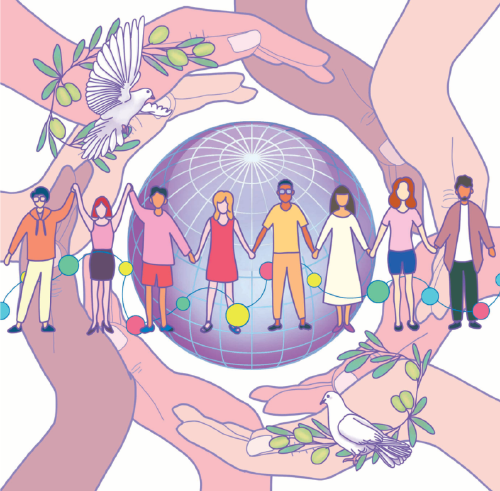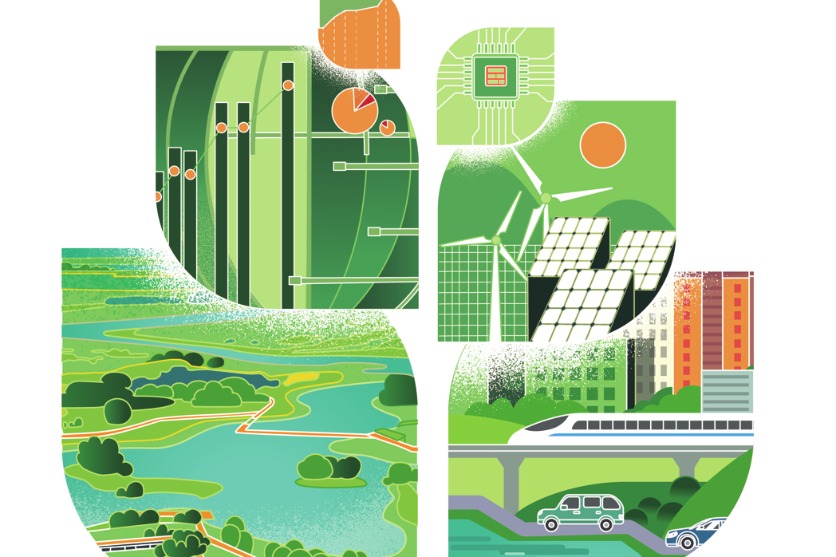Global development, global governance inextricably linked


Global governance, which is now at the heart of international relations, is linked to the history of globalization, but also to the geopolitical transformations that accompany it.
There are signs that attempts are being made by some countries to roll back globalization. These attempts should not, however, lead us to anticipate de-globalization, which would render futile moves to perfect the existing elements of global governance.
Globalization is complex. It is neither unidirectional nor unidimensional. It ebbs and flows depending on the nature of the relations between economies.
Technological advances that are combining to form what is described as a fourth industrial revolution are illustrative components of the complex nexus that is for the sake of convenience labeled globalization.
While forging ever deeper connections between peoples, globalization has also made evident problems that do not stop at borders. These transnational issues call for a more effective collective organization not a dismantling of the nexus.
Moreover, and this is fundamental to the solution to the problems, the awareness of belonging to the same human civilization has never been so strong and shared by peoples on all continents.
Power relations are a key determinant of global governance. Until the end of the 20th century, the global governance system was largely developed under the impetus of the Western world, and in particular the United States.
The Chinese renaissance and its accelerated development since it launched reform and opening-up in 1978 has profoundly changed the dynamics among countries. Globalization is intrinsically the process of de-prioritizing Western civilization in the global system, which is why Western countries are so resistant to the change.
The Global Development Initiative was put forward by Chinese President Xi Jinping at the 76th session of the United Nations General Assembly on Sept 21, last year. This articulates the process of change around four main priorities: the need to defeat COVID-19, the imperative to revive the global economy and promote global development, the duty to put into practice international relations marked by mutual respect and finally to improve global governance and practice true multilateralism.
Considered as a whole, Xi's speech delivered within the framework of the United Nations was a reaffirmation of China's commitment to multilateralism, but above all it was a call for countries to work together to usher in a fairer and more harmonious global system. It would be a mistake to underestimate the devastating effects on the international community of Donald Trump's populism, which for four years weakened the spirit of cooperation between nations.
It is because it is itself a reference in the field of development that China is able to formulate strategies that can serve other nations. From this point of view, it can be said that its influence will be proportional to its ability to achieve the rejuvenation of the Chinese nation.
The United Nations' 2021 Sustainable Development Goals Report estimates that more than 100 million people have been pushed back into extreme poverty as a result of the COVID-19 pandemic. We can ignore it, or worse, pretend not to see it, and yet the urgency for action is clear. The Global Development Initiative tries to respond to this responsibly. The initiative also echoes principles that we must always bear in mind and which are clearly set out in founding declaration of the UN.
Chapter IX of the Charter of the United Nations, Article 55, reminds us that the members of the organization shall promote "higher standards of living, full employment and conditions of progress and development in the economic and social order". And, moreover, Article 25 of the Universal Declaration of Human Rights proclaims: "Everyone has the right to a standard of living adequate for the health and well-being of himself and his family, in particular for food, clothing, housing, medical care and necessary social services."
At the heart of the Global Development Initiative is the notion of a community with a shared future for mankind.
What is truly new in our times is not the bid to dismantle globalization, but the increasing complexity of the interconnectedness that makes up our world.
In this context, a paradigm shift is needed. If the problem of failed states remains, that is failure of the global governance system, that is to say an international community incapable of renewing its mechanisms of governance to support the development of all countries. That constitutes the major risk of our time.
It is to be hoped that we have the courage and reason not to let a tragedy occur which we know that cooperation could prevent. It is now that China, the European Union and the United States should set aside their differences and take the lead in putting the Global Development Initiative into effect for a better future for all.
David Gosset, a sinologist, is the founder of China-Europe-America Global Initiative (2021). He is the editor of China and the World in three volumes.
If you have a specific expertise, or would like to share your thought about our stories, then send us your writings at opinion@chinadaily.com.cn, and comment@chinadaily.com.cn.


































